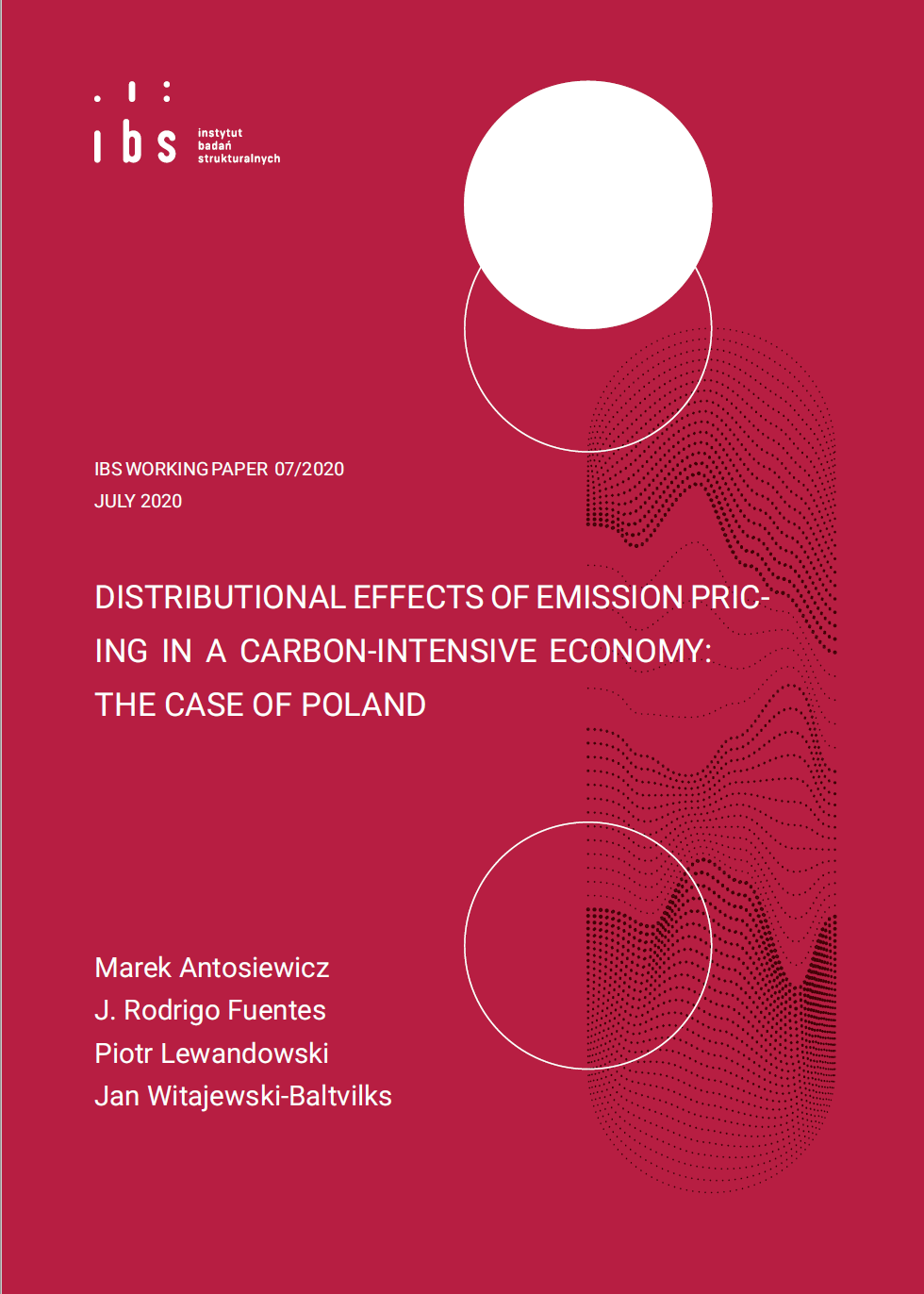In this paper, we assess the distributional impact of introducing a carbon tax in Poland. We apply a two- step simulation procedure. First, we evaluate the economy-wide effects with a dynamic general equilibrium model. Second, we use a microsimulation model based on household budget survey data to assess the effects on various income groups and on inequality. We introduce a new adjustment channel related to employment changes, which is qualitatively different from price and behavioural effects, and is quantitatively important. We find that the overall distributional effect of a carbon tax is largely driven by how the revenue is spent: distributing the revenues from a carbon tax as lump-sum transfers to households reduces income inequality, while spending the revenues on a reduction of labour taxation increases inequality. These results could be relevant for other coal-producing countries, such as South Africa, Germany, or Australia

Institute for Structural Research (IBS); Faculty of Economic Sciences, University of Warsaw

